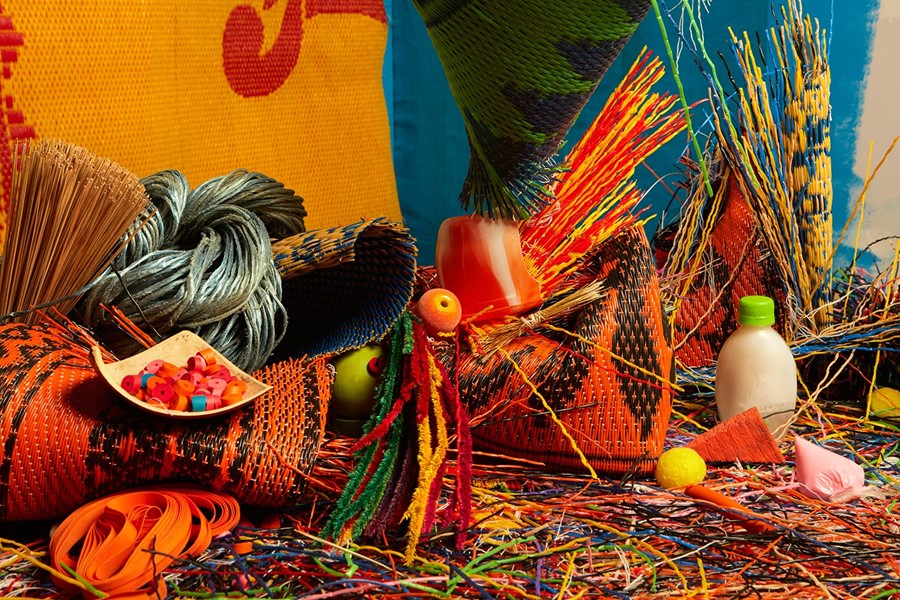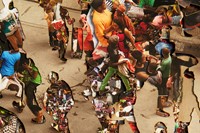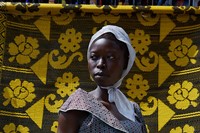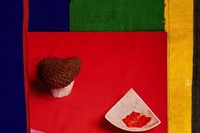In an amplified sequel to his Dalston Anatomy series, Lorenzo Vitturi travelled to Nigeria to capture the capitalist chaos at its centre
Back in the summer of 2014, Lorenzo Vitturi released Dalston Anatomy, a photo-book that captured the essence, smells, sights and sounds of London’s famous Ridley Road Market. By creating sculptures, collages and compositions put together by things Lorenzo bought from the stalls, he created a publication that truly encapsulated that iconic north London stretch of road.
Off the back of the success of that publication, Lorenzo was invited by the African Artists Foundation to visit Lagos, Nigeria, to explore the gargantuan Balogun Market in the city centre. What he found was a sprawling, ever changing mass of stalls, people and goods which was slowly taking over the city centre – spreading vertically up floors of high-rise buildings, as well as accumulating around their base.
One building in particular, the 35-storey Financial Trust House, has been completely taken over by the ever-sprawling market, leaving its owner with only the fourth floor in which to work. It is on this floor that Lorenzo created the images for his new publication, Money Must be Made, which is inspired by the curious, reverse gentrification he witnessed happening in Balogun. In Dalston, Ridley Road Market is in a constant battle with the effects of gentrification and capitalism. In Lagos, however, the battle is reversed and the market appears to be winning. We spoke to Vitturi to find out more.
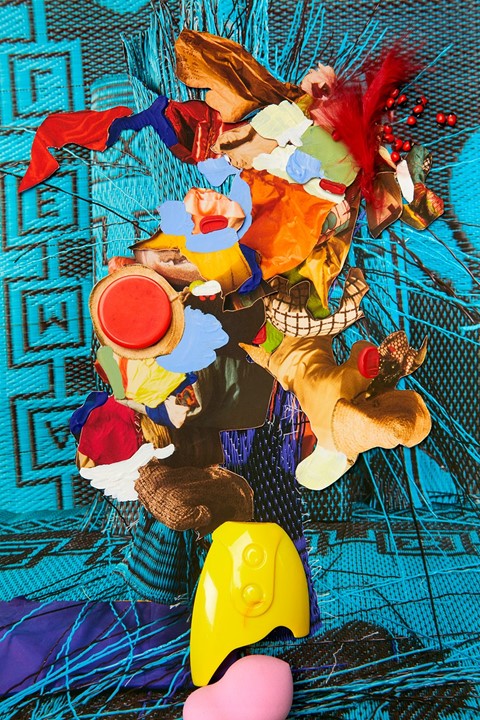
On how this new book is connected to Dalston Anatomy…
“Dalston Anatomy was about how a neighbourhood was transformed by gentrification, and was a celebration of diversity of Dalston and the West African culture that I found there. After that project, I was invited by the African Artists Foundation to go to Lagos, Nigeria and start something new. In a way it was a continuation: when I started to work in Lagos I found, by chance, this incredible story which was connected to Dalston Anatomy about how the area was changing really fast. The situation in Lagos was exactly the opposite of the situation that inspired Dalston Anatomy: in Dalston it was a local market that had been transformed by the big developers in the area, the new book, Money Must Be Made, is a local market which is actually taking over the space of the financial district. So it’s exactly the opposite, but they are so connected. When they told me this story I couldn’t resist. I thought: ‘this is something I really need to do’.”
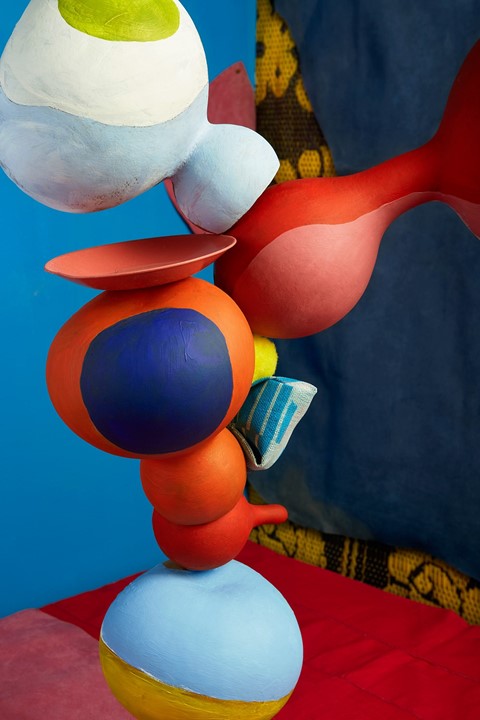
On the atmosphere of Balogun Market in Lagos…
“I’ve been to a lot of markets in a lot of chaotic cities, I’m quite obsessed by them. But the scale of this one, its energy, the movement, the amount of people I found on the streets of Lagos… It’s not like anything I have ever seen before. You are talking about one of the biggest markets in Africa: everything happens on the street. The market is not only taking over the streets around the buildings, but it’s growing up inside the buildings vertically, so it’s not even a horizontal market, it’s a vertical market. All the floors of all the buildings in the market area are filled with all kinds of products and goods, mostly imported from China. Even if you live in London then Ridley Road Market can feel like a chaotic place. Lagos is completely different. It’s quite extreme. It’s very difficult even to find the same people when you go there every day. Over time you can manage to build relationships, but it’s a continuous and unstoppable flux of people.”
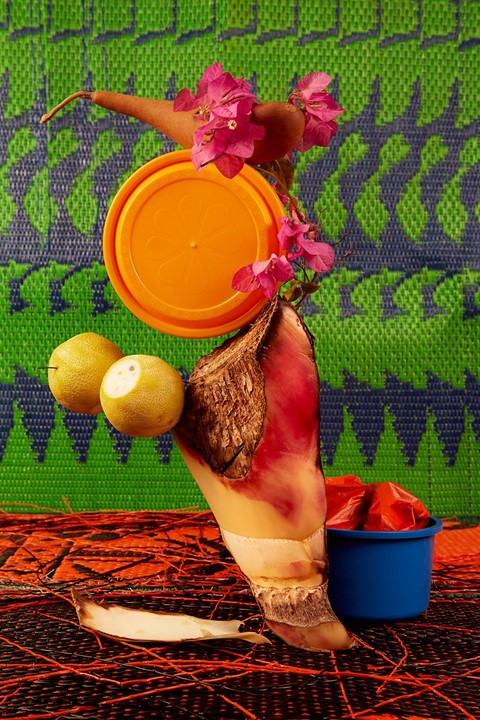
On gentrification…
“All my work – even before Dalston Anatomy – was touching on or connected to the idea of gentrification. In all western cities the affect of it is so dramatic. You can see the affects really clearly every day and it is something that has affected every city I go to. It’s an important issue that is touching all of our lives and is transforming the reality of mostly all the western cities. I am attracted to situations and realities where gentrification has flattened neighborhoods and communities. For me, gentrification is something that is negatively changing our cities, but at the same time these cities are really exciting because the changes are so continuous and lead to better services and so on. We need to find a balance between this kind of transformation, but at present the negative aspects seem to outweigh the good.”
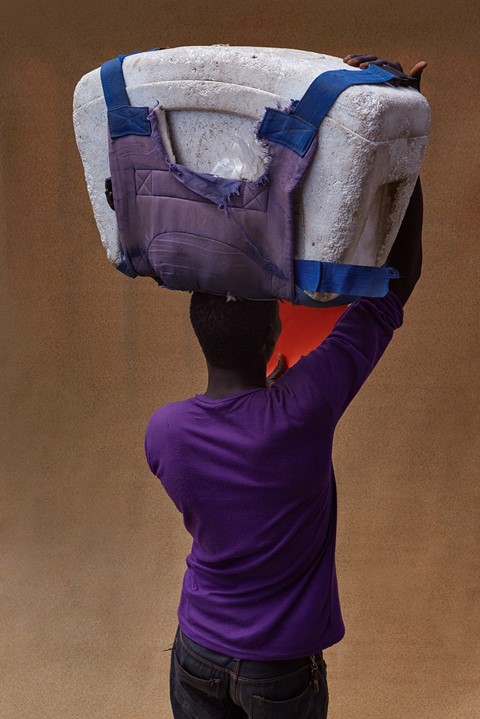
On the importance of markets…
“When I visit a new place the market is the first place I go to so I can get a clear and fast impression and feeling of the culture. Especially food markets. They’re such an easy and powerful way to understand how the people live. The market is a really important and interesting place where people can meet and exchange goods. While big chain supermarkets are taking over streets, especially in London, you can still see that the market approach still works and that they attract crowds because people want that more personal approach to buying. The street market is perfect for that, and that is why they are still going after thousands of years.”
Money Must Be Made by Lorenzo Vitturi is out now, published by Self Publish Be Happy.
